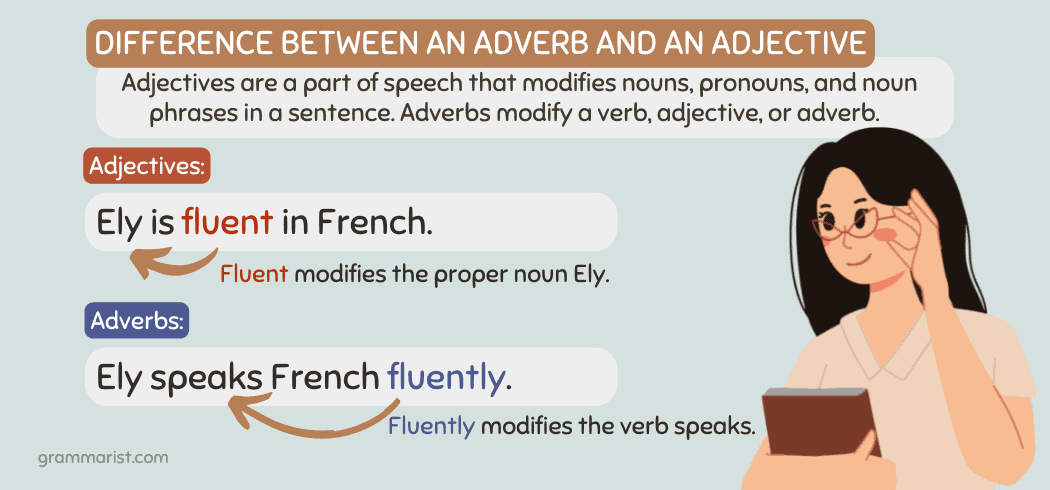Both adjectives and adverbs are modifiers. But they describe different parts of speech in the English language. Adjectives alter nouns and pronouns, while adverbs modify verbs, adjectives, and adverbs.
Answer this adverbs and adjectives test to challenge your understanding of the topic. It’s divided into three parts: multiple choice, identification, and completion tests.
Adjectives vs. Adverbs

Adjectives are parts of speech that modify a noun, pronoun, and other noun equivalents. For example:
- I am a fast learner.
In this sentence, fast modifies the noun learner.
Here are more examples of adjectives in sentences.
- Vanny is taller than Victoria. (Taller modifies the noun Vanny.)
- I am tired. (Tired modifies the pronoun I.)
Adverbs are parts of speech that modify a verb, adjective, or another adverb. For example:
- Read the instructions carefully.
In this sentence, carefully does not modify instructions. Instead, it describes the action verb read.
Here are more examples of adverbs in sentences.
- She sang joyfully. (Joyfully describes the verb sang.)
- She’s not mean. (Not describes the adjective mean.)
- She sang very joyfully. (Very describes the adverb joyfully.)
Some adverbs of manner can be formed by adding -ly to the adjective. For example:
- Quick – Quickly
- Happy – Happily
- Fortunate – Fortunately
- Careful – Carefully